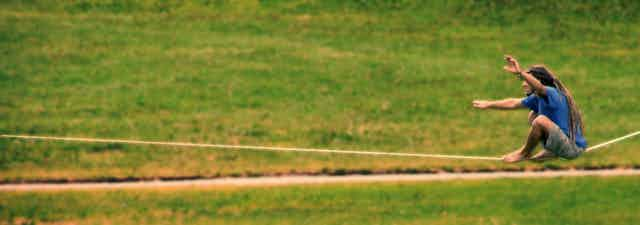In a recent speech at the British Science Festival in Newcastle, England, Astronomer Royal Martin Rees said on policy issues “scientists have a special responsibility to engage”. Yet he added: “They should accept that on the economic, social and ethical aspects of any policy they speak as citizens and not as experts.”
But are scientists able to distinguish between areas where they are experts and where they speak as citizens? Or do they make it clear on which basis they are speaking? Some scientists’ cries of “kill the badgers”, “we must have GM crops” or “go for nuclear power” lead me to think that sometimes the two roles have blurred edges.
There is a helpful way of looking at how scientists give advice to policymakers. In Roger Pielke’s book, The Honest Broker, he suggests that there are four ways scientists can choose to engage in the policy process. First, they can act as a “pure scientist” who publishes papers, and even if their work has relevance to a policy issue, they leave it for others to find and use the results. Second, they can act as “science arbiters”, who answer specific factual questions posed by decision-makers. Third, they can become an “issue advocate”, who decide for themselves on the “right” policy decision and become advocates for the “solution”, sometimes closing down the scope of choices available to policymakers. Finally, they can act as “honest brokers”, who aim to expand and clarify the scope of options and choices available to decision-makers, stepping back, leaving it to the policymaker to use this evidence to decide what to do.
On the matter of these four ways, scientists might reflect on where they sit on particular issues when speaking with policy-makers, journalists and even friends. Do they make up their minds about what should happen and advocate their version? Are they even aware when they, as Martin Rees puts it, are “acting as citizens”, or do they slip into territories that involve aspects beyond science and speak about them with the kind of authority they use when speaking about science?
Scientists get excellent training in how to be scientific - in logic, rational thinking and how to aim for objectivity. They don’t however get much training in reflecting on their behaviour or language, or really thinking through the boundaries of where scientific evidence comes up against other, murkier areas such as ethics and economics. Scientists rarely get training in how to give advice to policymakers. They may just be thrown into doing it, having observed how other scientists behave.
Pielke argues that on issues where there are high levels of uncertainty or high levels of disagreement the “honest broker” model will contribute both to better policy and to a healthy democracy. It is really up to elected representatives to make the decisions. Scientific evidence is a part of the evidence and context that needs to be considered, albeit an important part.
But I also think there are times when it is ok for scientists to become advocates. In an issue such as climate change, when the Bush administration and others were in denial that it was actually occurring and questioning whether humankind was contributing, there was, and still is, a key role for scientists to act as “advocates” – loudly and collectively. Many have been vocal, including David King, then the UK’s chief scientific advisor, who has claimed that climate change poses a bigger threat than that international terrorism. The main policy options about the issue were: deny, ignore or try to act.
Scientists have a crucial role when it comes to exploring possible routes to mitigating the effects of climate change, and to reversing, or at least reducing it. But if a scientist starts saying “so we must try to geoengineer the planet to combat climate change”, then they are beginning to take an advocacy role. Another territory where some scientists can act as “advocate”, having slipped into “citizen” territory, is the development of GM crops. The evidence that human population is expanding way beyond what current agricultural technologies can provide for is overwhelming, but concluding that a particular technology is the key answer is advocacy. A starting point of “some GM crops may be valuable in some cases” seems closer to being an honest broker.
Once a particular technology has been fixed on, it is too easy for scientists to back up their arguments saying, for example, that for economic reasons the UK must develop GM crops, without really addressing public concerns about impact on the environment or a desire to be able to choose what to eat. Many have made the point that we could “feed the world” right now, but for political and economic reasons, this just is not happening. And that those things should be addressed, rather than just going headlong for a single straight technological fix.
I agree with Rees, scientists do have a special responsibility to engage on policy issues. If your work is relevant, staying in the lab, acting as a “pure scientist” and not entering public discussions means that an important part of the evidence, and an important perspective, may be ignored. But scientists need to be more aware of and, importantly, more clear about when they are straying into speaking as citizens. They need to reflect on when they might be starting to advocate for particular solutions. It’s too easy for them to carry their cloak of authority into territories where evidence beyond the scientific is needed. In their training, scientists should be provoked into thinking about the way science advice is given and how they communicate with non-scientists. And perhaps most importantly, they need to explore with others the ethics, economic and social aspects around their work, so they understand better where the different boundaries lie.

